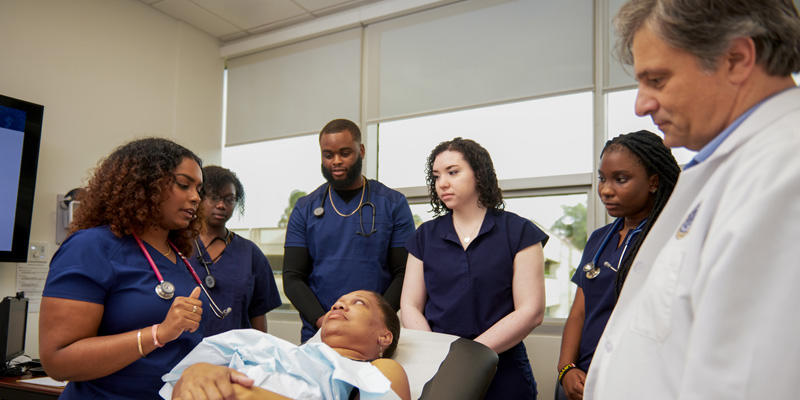Nursing today is very different from the nursing career I started nearly 50 years ago. Over the years, the responsibilities of nurses have become more diverse and increasingly demanding as the population ages, morbidity of chronic diseases increases, the threat of pandemics intensifies, and technology continues to develop at a dizzying pace. Nurses engage in technologies that did not exist even ten years ago and continually learn new approaches to diseases and wellness strategies – always learning and collaborating with the rest of the healthcare team. Those people who are cared for in hospitals are generally sicker, and are discharged from acute care centers sooner, often with complex social, psychological, spiritual and physical needs that require nurse coordination, teaching, collaboration, and care.
For the more than 16 years that the annual Gallup poll has been conducted, nurses have been identified as the most trusted profession (with the exception of 2001 when firefighters topped the list after September 11th). We are lucky to be viewed so highly by our patients and other members of the healthcare team, but with trust comes huge responsibility and accountability. Patients listen to what we say and watch what we do. We need to be models of self-care and wellness. But with the growing demands in an increasingly complex healthcare system where hospitals and clinics must do more with less, nurses are often fatigued. The pre-flight safety message we all hear on an airplane about putting on your own oxygen mask first before helping others applies to the nursing profession, as well. As nurses, we are caregivers first and we spend a significant amount of our emotional energy caring for patients and their families. All too often, we go home to take care of our families and there’s nothing left for us personally. I challenge you then with the question - If we nurses don’t take care of ourselves, how can we ever take good care of others?
As the president of Chamberlain University, I take my job of educating our future nurses very seriously. Teaching nursing students the importance of caring for themselves and others is woven into everything we do. Last fall, I published a book that shares Chamberlain’s seven-year journey to transform our culture and work climate into a culture of care. Chamberlain Care has enhanced the services and support provided to students and faculty and has improved satisfaction, engagement and academic outcomes. In fact, an independently administered survey of international colleague engagement benchmarked Chamberlain faculty and staff against employees of all types of companies worldwide. Since 2013, our Chamberlain employee engagement scores, including faculty engagement, have continued to rival benchmark scores for the best companies in the world. My personal passion is proving to the world that a positive culture is essential to individual and organizational health – and as a by-product has a positive impact on the bottom line.
Throughout my career, I’ve worked in many different work environments and I’ve found that I’m most productive and successful when I feel supported. After all, if you don’t feel appreciated, how can you come to work every day and give it your all? This theory also applies to nurses. If nurses who are caring for our sickest and most vulnerable people don’t feel cared for, how will they deliver person-centered care to patients and families?
During this National Nurses Week, let’s take time to reflect on and make a commitment to both caring for ourselves better so we can each do our best work – whatever client we serve – and improving our care of those who work in our organizations. A few ways I focus on my own self-care are:
- I believe that as a leader, it is my responsibility to inspire my team and colleagues. To do that, I have to be inspired myself, which means finding my inspiration and recharging my batteries when needed. In addition to attending workshops and conferences to learn and be inspired in my work, I often use such things as music, spending time in deep conversation with friends, boating and swimming, as ways to recharge.
- Of course, living a healthy life-style is critical to self-care and having enough reserves to give of yourself to others. Though I work on it, I could certainly be better in this category.
- Though I could be better with my diet and exercise, I do take time for reflection and gratitude. Starting and/or ending the day with a thankful attitude is an important factor in my energy and ability to deal with stress.
I would be interested in hearing your most effective ways to take care of yourself and promote your own self-care. We can all learn something from each other!
Thank you to all fellow nurses for the work you do every day to make this world a better place for so many.
Happy Nurses’ Week!



